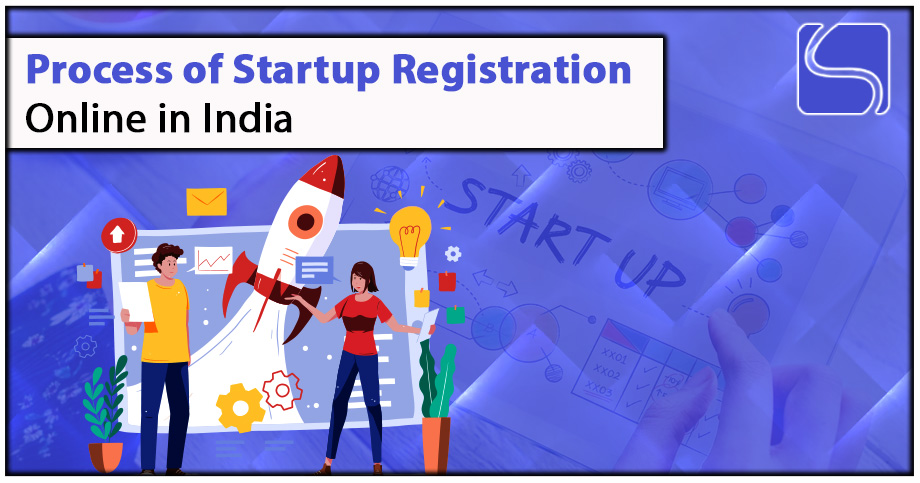Startup Registration in India: A step by step guide

Shivam Narwal | Updated: Apr 21, 2023 | Category: Startup
India has emerged as a hub for startups, with the government taking various initiatives to promote entrepreneurship in the country. However, starting a business in India can be a complex process, and it’s important to understand the legal requirements and procedures for startup registration. In this blog, we will guide you through the step-by-step process of registering your startup in India. We will cover everything from obtaining a Digital Signature Certificate (DSC) and Director Identification Number (DIN) to filing the required forms and paying the necessary fees. Additionally, we will discuss the benefits of startup registration in India, including limited liability protection, easy access to funding, credibility and trust, and legal protection. By the end of this blog, you will have a clear understanding of how to register your startup in India and the advantages of doing so.
Table of Contents
Understanding the Definition of a Startup
Before we dive into the registration process, it’s important to understand what qualifies as a startup in India. According to the Department for Promotion of Industry and Internal Trade (DPIIT), a startup is defined as an entity that:
- Is less than ten years old since its incorporation or registration.
- Has an annual turnover of less than INR 100 crore (approximately USD 13 million).
- Is working towards innovation, development, deployment or commercialization of new products, processes, or services driven by technology or intellectual property.
If your business meets these criteria, you can proceed with the registration process.
Types of Business Entities in India
In India, there are various types of business entities that you can register as, each with its own set of advantages and disadvantages. Some of the most common types of business entities include:
- Sole Proprietorship: This is the simplest form of business entity where a single individual owns and operates the business.
- Partnership Firm: This type of business entity is formed when two or more people come together to operate a business. Partnerships can be either registered or unregistered.
- Limited Liability Partnership (LLP): An LLP is a hybrid between a partnership firm and a company. It offers the flexibility of a partnership firm with the added advantage of limited liability protection for its partners.
- Private Limited Company: A private limited company is a separate legal entity from its owners and shareholders. It offers limited liability protection and is required to have a minimum of two directors and two shareholders.
- Public Limited Company: A public limited company is similar to a private limited company but can have an unlimited number of shareholders. It is required to have a minimum of three directors and seven shareholders.
- One Person Company: A one person company (OPC) is a new type of business entity introduced in India in 2013. It is similar to a private limited company but can be owned and operated by a single individual.
Steps for Startup Registration in India
Now that you have a better understanding of what a startup is and the types of business entities in India let’s dive into the steps required to register a startup.
Step 1: Obtain a Digital Signature Certificate (DSC)
The first step in the startup registration process is to obtain a Digital Signature Certificate (DSC) for the proposed directors of the company. A DSC is an electronic signature that is used to sign digital documents. You can obtain a DSC from any certifying authority licensed by the Controller of Certifying Authorities (CCA).
Step 2: Obtain Director Identification Number (DIN)
The next step is to obtain a Director Identification Number (DIN) for the proposed directors of the company. The DIN is a unique identification number that is required for every director of a company. You can obtain a DIN by submitting an online application to the Ministry of Corporate Affairs.
Step 3: Register for a New User Registration on the MCA Portal
Once you have obtained a DSC and DIN, you can register for a new user registration on the MCA portal[1]. This will allow you to access the MCA services and file the required forms for startup registration. To register, you will need to provide basic information such as your name, email address, and phone number.
Step 4: Reserve a Unique Name for Your Startup
The next step is to reserve a unique name for your startup. You can do this by filing an application for name availability on the MCA portal. The name should be unique, easy to remember, and not similar to any existing companies or trademarks. It’s important to note that the MCA has certain rules and regulations regarding the selection of company names. For example, the name should not contain any offensive or vulgar words.
Step 5: File the Required Forms
Once you have reserved a unique name for your startup, the next step is to file the required forms with the Registrar of Companies (ROC). The forms that need to be filed will depend on the type of business entity you are registering as. For example, if you are registering as a private limited company, you will need to file Form INC-32 (SPICe) along with the Memorandum of Association (MOA) and Articles of Association (AOA).
Step 6: Pay the Required Fees
After filing the required forms, you will need to pay the required fees for startup registration. The fees will depend on the authorized capital of the company. For example, if the authorized capital is less than INR 1 lakh (approximately USD 1,300), the fee is INR 2,000 (approximately USD 27). You can pay the fees online through the MCA portal using a debit or credit card.
Step 7: Obtain the Certificate of Incorporation
Once the forms are processed and the fees are paid, the Registrar of Companies will issue a Certificate of Incorporation (COI) for your startup. The COI is proof that your startup has been legally registered and can commence operations.
Benefits of Startup Registration in India
Now that you know how to register a startup in India, let’s take a look at some of the benefits of startup registration.
- Limited Liability Protection: One of the biggest advantages of registering a startup as a private limited company or an LLP is the limited liability protection it offers. This means that the personal assets of the directors or partners are not at risk in case of business debts or losses.
- Easy Access to Funding: Registered startups are eligible for various government schemes and incentives, which can provide easy access to funding. For example, the Startup India Seed Fund Scheme provides financial support to startups with innovative business ideas.
- Credibility and Trust: Registered startups have a higher level of credibility and trust among customers, investors, and other stakeholders. This can help attract more business opportunities and investments.
- Legal Protection: Registered startups have legal protection under the Companies Act, which can help resolve any disputes or legal issues that may arise in the future.
Conclusion
To sum up, Startup Registration in India is a critical step towards ensuring legal compliance and gaining credibility in the market. Although the process may seem daunting, it’s essential to follow the steps carefully and seek professional help if needed. By registering your startup, you can enjoy several benefits, such as limited liability protection, easy access to funding, and legal protection. Additionally, it can help enhance your startup’s credibility and attract more business opportunities and investments. So, if you have a great business idea, don’t hesitate to register your startup and take the first step towards success in India’s thriving startup ecosystem.
Read our Article:How to Get Patent for Startup Idea? – An Overview














